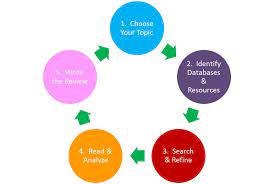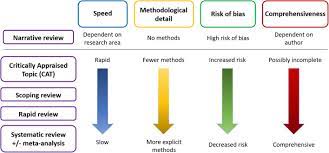Building your research on and relating it to existing knowledge is the building block of all academic research activities, regardless of discipline. Therefore, to do so accurately should be a priority for all academics. However, this task has become increasingly complex. Knowledge production within the field of business research is accelerating at a tremendous speed while at the same time remaining fragmented and interdisciplinary. This makes it hard to keep up with state- of-the-art research and to be at the forefront, as well as to assess the collective evidence in a particular research area. This is why the literature review as a research method is more relevant than ever. A literature review can broadly be described as a more or less systematic way of collecting and synthesizing previous research (Baumeister & Leary, 1997; Tranfield, Denyer, & Smart, 2003). An effective and well- conducted review as a research method creates a firm foundation for advancing knowledge and facilitating theory development (Webster & Watson, 2002). By integrating findings and perspectives from many empirical findings, a literature review can address research questions with a power that no single study has.
It can also help to provide an overview of areas in which the research is disparate and interdisciplinary. In addition, a literature review is an excellent way of synthesizing research findings to show evidence on a meta-level and to uncover areas in which more research is needed, which is a critical component of creating theoretical frameworks and building conceptual models. However, traditional ways of describing and portraying the literature often lack thoroughness and are not undertaken systematically (Tranfield et al., 2003). This results in a lack of knowledge of what the collection of studies is actually saying or to what it is pointing at. As a result, there is a great chance that authors build their research on flawed assumptions. When researchers are selective of the evidence on which to build their research, ignoring research that points the other way, serious problems can be faced. In addition, even when the methodology of the reviews is valid, there are often issues with what constitutes a good contribution.
Of course, there already exist some guidelines for conducting literature reviews that suggest different types of reviews, such as narrative or integrative reviews (e.g., Baumeister & Leary, 1997; Wong, Greenhalgh, Westhorp, Buckingham, & Pawson, 2013), systematic reviews, and meta-analysis (e.g., Davis, Mengersen, Bennett, & Mazerolle, 2014; Liberati et al., 2009; Moher, Liberati, Tetzlaff, & Altman, 2009) or integrative reviews (e.g., Torraco, 2005). There have also been some attempts to develop guidelines specifically for business or management research (e.g., Palmatier, Houston, & Hulland, 2018; Tranfield et al., 2003). By building on and synthesizing these different types of literature reviews, this paper takes a broader view by summarizing and integrating the different guidelines, including how to apply them in business research. More specifically, the purpose of this paper is to provide an overview of and guidelines for different types of literature reviews as a research method in businesses research.

In the following paper, it will be argued that the potential for making theoretical and practical contributions using the literature review as a method will be advanced by clarifying what a literature review is, how it can be used, and what criteria should be used to evaluate its quality. The paper has several contributions. First, this paper separates between different types of review methodologies; systematic, semi-systematic and integrative approaches and argues that depending on purpose and the quality of execution, each type of approach can be very effective. While systematic reviews have strict requirements for search strategy and selecting articles for inclusion in the review, they are effective in synthesizing what the collection of studies are showing in a particular question and can provide evidence of effect that can inform policy and practice. However, systematic reviews are not always the best strategy. Instead, when wanting to study a broader topic that has been conceptualized differently and studied within diverse disciplines, this can hinder a full systematic review process. Instead, a semi-systematic review approach could be a good strategy for example map theoretical approaches or themes as well as identifying knowledge gaps within the literature. In some cases, a research question requires a more creative collection of data, in these cases; an integrative review approach can be useful when the purpose of the review is not to cover all articles ever published on the topic but rather to combine perspectives to create new theoretical models. Second, the current paper addresses practical issues that may be encountered when conducting a literature review in business research. These issues, for example, can relate to selecting the appropriate review methodology for the targeted research question, deciding on eligibility criteria, determining appropriate boundaries for the review, choosing what data to extract from the paper, or concluding what type of contribution should be made. Third, this paper provides context and guidance to researchers seeking to use the literature review as a method to synthesize research in their own domains, to inform their own research, or to provide guidance for social policy. Last, this paper also aims to provide some guidelines for how to assess quality when evaluating review papers which hopefully will be helpful to editors, reviewers, and authors, as well as to any reader of a review paper.
Source: Hannah Snyder (2019), “Literature review as a research methodology: An overview and guidelines”, Journal of Business Research, Volume 104, Pages 333-339, https://doi.org/10.1016/j.jbusres.2019.07.039




Very nice write-up. I definitely appreciate this
website. Continue the good work!
Hi to every body, it’s my first visit of this blog; this weblog consists of remarkable
and actually excellent material for visitors.